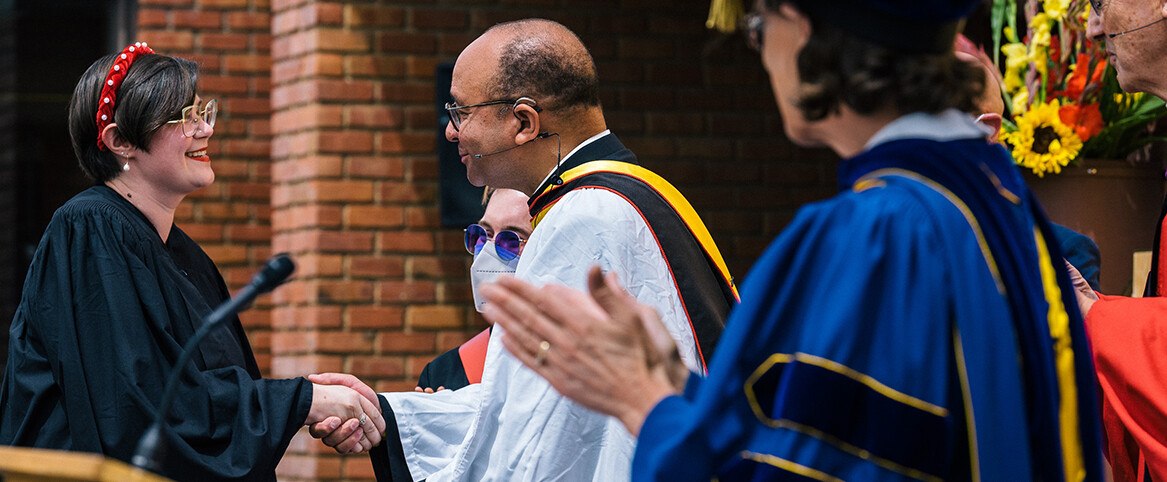History
CDSP was founded in 1893 to train clergy locally for the Episcopal Church in the West. The Rt. Rev. William F. Nichols, the seminary’s founding dean, understood the peculiar character of the frontier society springing up on the Pacific slope. As the second bishop of the Diocese of California, he recognized that the church had only a brief history in the American West and needed to earn its place through a patient pastoral presence animated by missionary spirit.
George Gibbs, a wealthy businessman and devout Episcopalian, donated a building and property in San Mateo for Bishop Nichols’ divinity school. The original seminary, called Gibbs Hall, was built in 1893. After the San Francisco earthquake of 1906, Gibbs’ widow, Augusta, moved the seminary to a new building next to Grace Cathedral. CDSP provided a traditional Anglican education in divinity for students from all over the West Coast and as far away as China, Japan, and the Pacific Islands.
Move to Berkeley
In 1924, CDSP’s by-laws were amended to provide for elected trustees and the school was moved to Berkeley where it benefitted from close relationships with other Protestant seminaries already established in the East Bay. Under Dean Henry Shires, CDSP became the fifth Episcopal seminary to be accredited by the Association of Theological Schools. In 1962, the promise of ecumenical cooperation that had drawn CDSP to the East Bay blossomed into the creation of the Graduate Theological Union, which offered a program of doctoral studies.
Women in Ministry
Through much of its history, CDSP benefitted from its relationship with St. Margaret’s House, a Berkeley-based institution that trained deaconesses and lay women for ministry in the Episcopal Church from 1909-66. CDSP also trained women for ministry, and was the first Episcopal seminary to enroll women in the Bachelor of Divinity program (which later became the M.Div. program), awarding that degree to Ethel Springer in 1941. In 2014, the seminary established the St. Margaret’s Visiting Professorship of Women in Ministry.
Center for Anglican Learning and Leadership (CALL)
Local clergy and other bishops had long been adjunct faculty at CDSP, and in 1970 a field education program was begun. Four years later, after decades of informal arrangements, CDSP created a continuing education program for clergy, church musicians, and other religious professionals. Since 1995, the seminary’s Center for Anglican Learning & Leadership has forged an educational partnership with the wider Church, offering programs, including online courses and weekend seminars for both clergy and laity.
An International Center of Distinction
Although rooted in the West, CDSP has consistently reached beyond the confines of both geographical and ideological boundaries. From the beginning, at least one third of its graduates have served the Church east of the Rockies or in mission fields all over the world. Its online students pursue their educations from nearly every state in the U.S.


